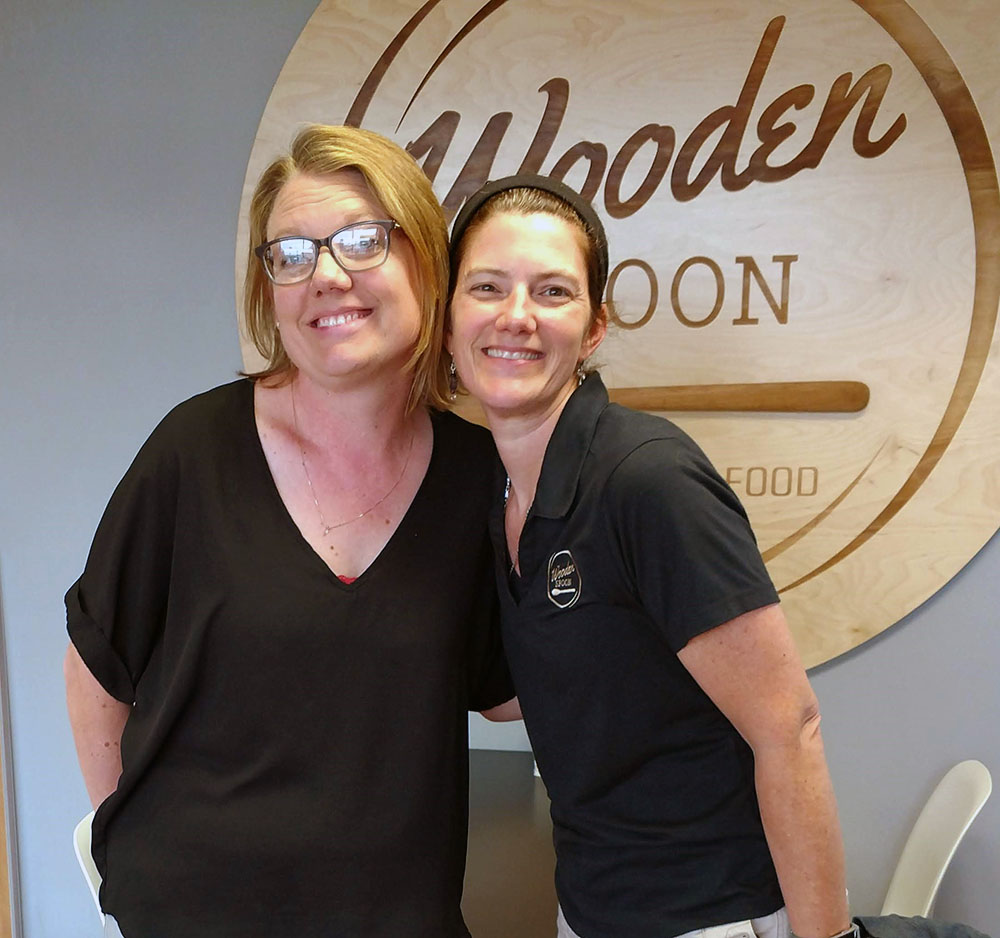When we opened Wooden Spoon, one of the founding principles was partnerships.
I remember lots of partnerships being announced on Facebook, and our excitement when Facebook came up with a partnership icon! Everything and everyone fell into the “partnership” bucket. We had a new customer and it was a partnership. We collaborated for an event and it was a partnership. We bought from a new producer and it was a partnership. I have continued that tradition of the broad definition of partnership.
Recently, I had a relationship that I thought of as partnership that did not work out as I had expected. It has really got me thinking about what that word really means.
Most of all, I have learned that partnerships are evolving relationships that take time, attention and hard work. They are built on trust. Some work, some don’t. But it is the journey that is really the most rewarding part.
I look around me at all the relationships I have, and I have a lot of amazing people in my life that support Wooden Spoon. I have great collaborators, customers, mentors and friends. But as I was trying to put my finger on what really makes a good partnership, I kept coming back to one of best and most fulfilling experiences I have which is with Mankato Youth Place Inc., better known as MY Place.
Erin Simmons, the director, and I have worked together for several years. She was previously at American Lung Association, doing commercial tobacco control work, which I also did when I started at the Public Health Law Center. Our paths have crossed many times over the years. When she was tasked to lead MY Place, formally known as Boys & Girls Club of Mankato, she reached out to Wooden Spoon about providing food for the kids.

As I reflect on the past year, my take-away is that lasting partnerships are not built from Facebook posts or language in a contract, but on communication, mutually beneficial opportunities, and vulnerability.
Communication
Communication is key and it must be honest. “Clear is kind,” as Brené Brown says.
If something is not working with a meal item, Erin picks up the phone and lets me know. We problem solve together — which is how the kids went from cold sandwiches to chicken hot dish to mac & cheese with chicken drummies. Erin is not afraid to name an issue and have a difficult conversation. She will come to those conversations with potential solutions, and we work on those issues together. The entire time, we keep the goal in our sights: how to get the MY Place kids healthful meals that they will eat. We found out the peas don’t work as well as the ground up cauliflower, so we serve riced cauliflower. It is like a well-worn path of change: try, check-in, pivot, try, check-in, pivot, and on and on it goes.
Mutual Benefit
Another key to partnership is that the relationship must be mutually beneficial.
I have lots of customers who pay for a service, but that is not partnership. Partnerships are deeper, with me investing time and capacity, which are in limited supply, for innovative ways to work together and that fundamentally alter the Wooden Spoon business model. For example, MY Place was having a hard time getting the food picked up. So, we talked and came up with a way to get the food delivered in a way that made it possible for Wooden Spoon to ensure a staff member is available to take delivery of the food.
Life is hard, so those little ways of supporting each other are like magic.
Vulnerability
Finally, nothing cements a partnership like vulnerability.
I feel like I can show up as my true self with Erin. I make mistakes, I make amends and fix the problem. She does the same. We have both gone through tunnels of change over the past year and have relied on each other for support. Sometimes that means a supportive meme. And sometimes it is just a knowing nod that it is a bad day, and a warm smile in hopes that tomorrow will be better. Life is hard, so those little ways of supporting each other are like magic.
Partnerships are not perfect because nothing is perfect.
I have learned a lot about partnerships in my time running a small business. They are funny and fickle and wonderful and empowering and hard. Most of all, I have learned that partnerships are evolving relationships that take time, attention and hard work. They are built on trust. Some work, some don’t. But it is the journey that is really the most rewarding part.




